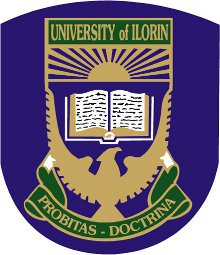In order to ensure a viable and lasting solution to the perennial conflicts between herdsmen and farmers in the country, a Professor of Veterinary Medicine at the University of Ilorin, Prof. S. F. Ambali, has advised the Federal Government to ensure a proper enlightenment of the Fulani herdsmen on the gains of embracing the ranching system.
Prof. Ambali, who is also the Dean of the Faculty of Veterinary Medicine in the University, gave the advice in an interview with Unilorin Bulletin last Wednesday (August 3, 2016).
Saying that the proposed ranching system would lead to improved livestock productivity and ensure greater economic benefits, the Dean explained that the frequent clashes between the herdsmen and the farmers was essentially as a result of climate change and desertification, which he described as a global problem.
He also pointed out that the challenge of insecurity in the north eastern part of the country "has made the Fulani and even people from other regions of Africa to migrate to Nigeria."
Prof. Ambali said, "the northeast provides a versatile area of grasses for their animals, but Boko Haram has depopulated the grazing area for animals; so they need to move towards the South and that is why a lot of pressure is being brought especially in the North central region of Nigeria… It is even being complicated by the fact that some of these people like we are told, are the fleeing Boko Haram members disguising as herdsmen and causing havoc."
According to him, Nigeria presently has about 21 million herds of cattle with an annual growth rate of 2.2 percent. He said that the government must play its part by ensuring the provision of adequate infrastructure that the establishment of ranches will require.
He said, "The issue of ranching comes with a lot of infrastructure; you have to get them water. To accommodate about 21 million herds of cattle, you will be talking about almost one billion gallons of water per day to water those animals. When you want to establish ranching, you have to establish them close to the water source but you will also be causing a lot of havoc to the neighbouring community who also depend on that source of water for their livelihood.
"So, the government and individuals will have to come up with some strategies and this is what we are also brainstorming in our own Faculty. We are going to come up with a suggestion to the government on how to move forward because ...we need the Fulanis, but they need to be enlightened that ranching will improve their output."
According to Prof. Ambali, "the concept that the Fulani men have is that their cattle are for prestige and not for economic purpose. Therefore, we need to do a lot of reorientation that cattle are no more kept for prestige they are source of income and if they are settled in a place, we can provide them with grasses that are more nutritious and they can be provided with more scientific techniques that will improve the productivity of their animals, improve their earnings, improve their economic potentials; what is needed is just to re-orientate them."
The Dean bemoaned the fact that people have taken hard-line positions on this issue based on sentiments and emotions, stressing that, it was a wrong approach to resolving the conflict. "That will not solve our problem", he stressed, adding that "the Fulani herdsmen have been part and parcel of the community over time and we have lived amicably well; so we need to develop policies that will promote interaction and through interactions, we are going to enlighten them that look, the world is changing, it is now from prestige to economy; so if your animal is producing two gallons of milk per day, with ranching and good veterinary intervention, your cattle will be producing 25 or 30 litres of milk per day and that will send signals to them that look, we have been short-changing ourselves economically."
"So it is public enlightenment. It is developing a forum where the Fulani herdsmen, the farmers and the government and even the private investors can come in, because I as a private investor can come in and acquire a piece of land divide it into ranches and encourage the Fulani herdsmen to buy one part and pay rent to me per year, and that way, you make your money and solve societal problems."
"Unless we face it squarely, it is going to boomerang the way we are handling it because we are not handling things objectively; people are angry and you don't solve problems by being angry. Anger doesn't solve problems, what will solve problem is dialogue. Let us sit down, let these people understand the new concept of animal management and the farmers will also understand with them that it takes time to fully imbibe this transformation."
While noting that, some herdsmen will still be recalcitrant, Prof. Ambali said when "they see that it is advantageous to adopt the technology-based on the success being recorded with the people that have already embraced ranching; then they will also come on board. So, it's going to be a gradual thing because what has also contributed to high price of foodstuff in the market is due to many people abandoning arable farming because of incursion of cattle into their land."
"We need to have a point where all of us will meet and put our ideas together and understand the socio-cultural background of the Fulani, and the socio-cultural background of farmers will have to also be examined...so a lot of professionals- sociologists, psychologists will have a lot of role to play. The veterinarians, the animal scientists, all of us if we meet, I am sure we would come up with solutions that will solve this lingering problem that if we are not careful, could destroy the fabric of this nation."



